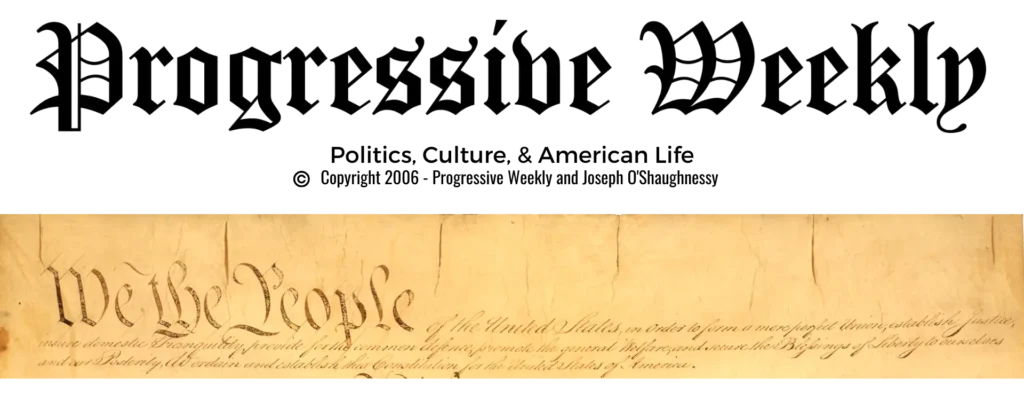
One certain change is “the numbers” in the Senate. Now that the much-younger-appearing 79-year old Senator from Pennsylvania has switched to the Democratic side of the aisle, the Democrats have the 60 votes necessary to overcome Republican opposition. This means laws fairer to labor. It means universal health care. Stimulus programs to get Americans back to work and rebuild America. A cap-and-trade bill that will begin to reduce carbon emissions in a meaningful way. It means ending the war in Iraq and focusing our efforts in Afghanistan to bring that campaign to a successful end.
Right Wing Republicans finally outsmarted themselves. With a popular Right Wing challenger in the Republican primary and with a state that would not elect a Right Winger, Specter decided correctly to let the Neocon Republicans go down to defeat without him. Since he would not be the Party’s candidate, he would run as a Democrat. In the moderate state of Pennsylvania, where Democratic registration out numbers Republican by a million voters, odds are that he will win.
The other change coming as a result of Specter’s move is in the manner and substance of debate in the Senate. With 60 Democratic members, it is meaningless for Republicans to rant and rave about irrelevant issues to delay and obstruct. Legislation will pass anyway. Once every piece of legislation can pass, then argument must be more skillful and more constructive. The only reason for obstructionist rhetoric is to obstruct. Once you can no longer obstruct, you must debate. Once barking proves ineffectual, the dog bites. To bite you must have an argument with teeth.
The Republicans must find real issues and call upon the best debaters on their side to skillfully present those arguments in the most persuasive way possible. Loafing about with lobbyists or challenging something like a President’s handshake with an unpopular foreign leader will result in the enactment of a long series of hyper-Liberal legislation. Senator McConnell had it right when he said that the American people now must decide if they want a complete Liberal agenda to pass. In order for it not to pass as the Democrats want it, Republicans must finally re-discover their debate skills. In order to add any Republican amendments to legislation, they must drop the false arrogance and feigned superiority. They are now clearly the minority in every respect. They must now debate issues the hard way–research and debate the on the merits of the Republican position.
There are Republicans who can do it as well as, say Dick Durbin of Illinois, who can stand and bring one solid point after another for fifty minutes without a note or a card or a chart. Orrin Hatch comes quickly to mind. Senator Kyle of Arizona, Senator Graham or Senator Grassley of Iowa. There are duds…zeros. Thune, Sessions, Enzi, Craig, McConnell, Ensign and others. They’ve been too long at the fair. They pushed legislation through for many years with no amendments. Then they obstructed for two years, with over 97 filibusters. No principles and no message. Simply pork for their friends. Their discipline for argument is weak and this time, lobbyist sponsored media fear campaigns can’t save them. But they have no choice now but to stand and fight and they are not in condition.
If they continue to hector and harass and bring negative energy, they will become extinct as a political party, which may not be a bad thing. Some combination of social moderates and fiscal conservatives and populists could then gather, organize and surround a charismatic leader. They could take the remnants of a once proud Party and build a new party on some combination of dispersion of responsibility to the states, a social populism, restoration of domestic manufacturing and true fiscal responsibility. It might lose one or two elections, but it would grow if it is true and not an extension of the 32,000 lobbyists in Washington, which the current Republican Party has become.
